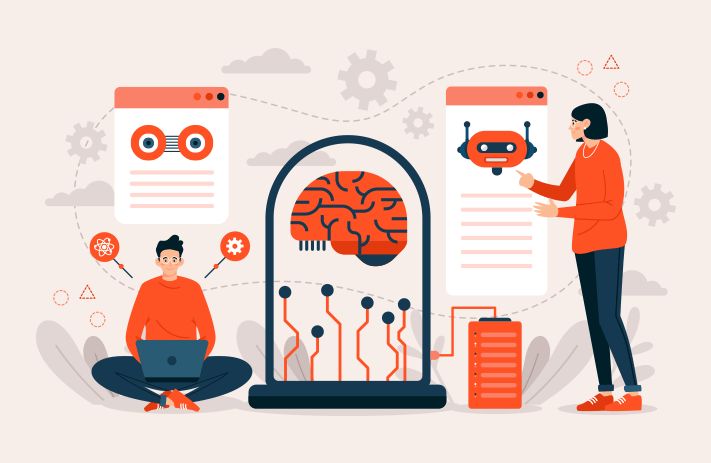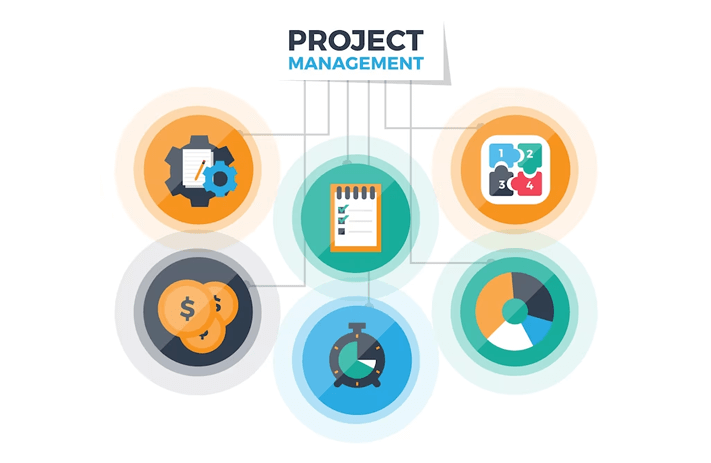
Click the button to start reading
4 Major Uses of AI in Project Management
Project managers are under persistent pressure to juggle multiple tasks and deal with competing priorities. Today, when they’re in constant search of help, the role of artificial intelligence in project management can’t go unnoticed.
Just think about it.
You delegate some parts of the work to your intelligent assistant that can analyze massive amounts of data, find patterns, learn from them, and make superfast predictions – without ever complaining of being tired!
It’s not science fiction. It’s a globally evolving trend.
One of the recent research by McKinsey indicates that in 2021, fifty-six percent of surveyed respondents have already adopted artificial intelligence (AI) in at least one function of their business.
What’s more, AI software, hardware, and services are estimated to grow year over year. According to IDC (the International Data Corporation), worldwide revenues for the AI market are predicted to hit the $500 billion mark by 2024.
Wait. Did you just think it’s only about tech companies? Absolutely not.
The artificial intelligence industry already determines how projects are managed across all possible domains and business fields.
In the construction field, for example, AI is used to monitor projects for errors, automate planning, identify paperwork inefficiencies, and conduct site inspections. Media and telecom companies, on the other hand, use AI to offer targeted content, provide more personalized experiences, and automate their newsrooms.
The good news for project managers is – today, processes are faster, and hardware is cheaper. Leveraging AI, without a doubt, is becoming an exciting journey.
Let’s now look at the use of AI in project management and how it can power day-to-day operations for smarter and more profitable results.
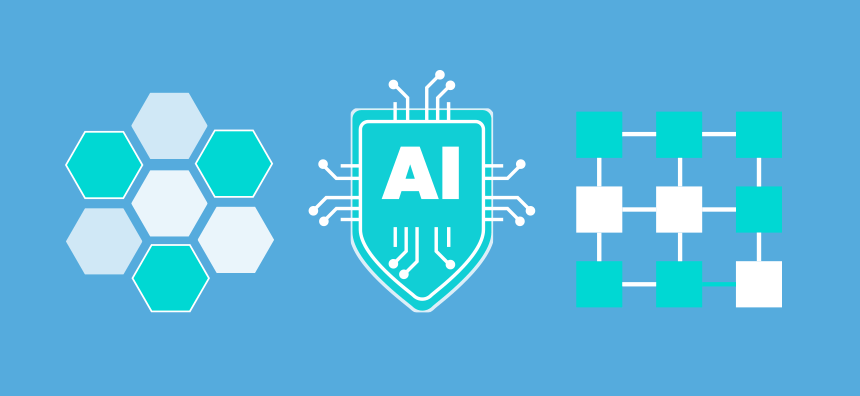
What is artificial intelligence (AI)?
Artificial intelligence (AI) is the imitation and modeling of human cognitive processes by computer systems, allowing machines to mimic human abilities (such as to reason, discover meaning, or generalize). AI analyzes massive data sets through algorithms to identify features, classify types, learn preferences, and predict action.
Put another way, AI is about input and output; you feed the machine with data, and it generates results to serve a specific purpose.
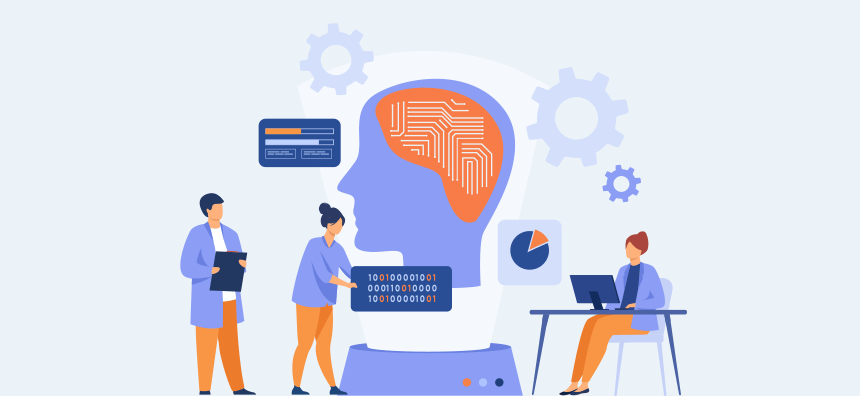
What is artificial intelligence in project management?
Project management AI can be viewed as a system incorporated into the project management process to supplement human activities. It relies on the limitless processing capacity of machine learning to infer meaning and help with project-related decisions.
The key role of AI in project management is to add value in different stages of the project lifecycle. AI can allocate resources and distribute tasks, assist in matching the right skills and responsibilities to the right resources, help with the hiring process by engaging the most competent talent for your project.
1. AI for automation
Think of AI as a savior. It’s here to liberate you from mundane, data-driven, and monotonous tasks.
Project managers are bogged down by lots of repetitive and manual work that can and should be automated. What are some of the necessary but low-value tasks? Identify them and let AI take them up to reduce grunt work in project management.
By taking on labor-intensive activities, AI frees up project managers’ time to focus on something more creative, meaningful, and intellectually stimulating. All of a sudden, project managers have more time for the core areas of their business: people management, project vision, team building, and network development.
The same is true for our teams. Chatbots, for instance, can automatically answer customers so that the customer service folks can concentrate on handling more complex issues.
2. AI for intelligent assistance
What are my five most high-risk projects now? Which ones should I be worried about? You don’t have to shuffle through dozens of lists and spreadsheets to find answers to questions. You simply have to ask, and the answer will be provided in no time.
Consider the following scenario.
Your project has been delayed. You need to start it next month rather than this month. AI-driven algorithms are given a task to shift your resourcing around and rearrange them for the upcoming month. And voila – the new plan is ready with a single command! You can now use AI to facilitate and centralize processes. Pack the schedule for your team in an optimal way so that workload is distributed fairly without any impact on project timing.
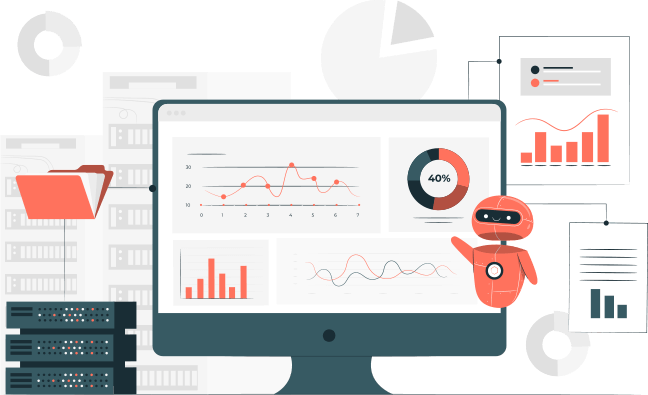
3. AI for predictive analytics
Predictive analytics is the use of AI in project management to assess what will happen in the future. With all the investment that goes into the AI market, data pools and data lakes will surely start providing increasingly accurate insights, enabling us to make predictions by eliminating human error and bias.
The insights received through AI can be not only valuable but also actionable. Deploying your robot army may help you get automatic alerts and draw insights at superhuman accuracy. For example, you might predict during certain events that there is an increased likelihood of network outage and plan your steps accordingly.
-
Risk management
Artificial intelligence can support in modeling risk and understanding risk thresholds. Furthermore, AI can signal about negative risks and positive opportunities out there. It’s a great tool for forecasting stakeholder behaviors and adjusting your management tactics accordingly. Thus, with the use of AI, you capitalize on the opportunities and mitigate risk.
-
Cost Management
It’s difficult to underestimate the role of cost management in a project. AI can help your team create multiple cost models, compare them based on different criteria and against myriad elements, build a dynamic pricing strategy, and forecast project cost.
After the project is approved and in progress, it’s possible to monitor cost metrics in real-time and draw the project manager’s attention to the most critical details. Operational activities like invoice entry can be taken over by AI-powered machines. Overall project costs can be reduced by quality assurance and compliance by providing additional oversight.
If you aim for a strategic advantage in the marketplace, you should be able to have access to increased observability and deep analysis that’s a step ahead of your competition. Patterns and minor changes are sometimes hard for people to observe but easy for AI to detect. Why not use a tool that never misses a detail?
4. AI for strategic partnership
AI projects tend to have quite a broad reach, and it’s likely that you won’t be working on AI in an isolated black hole. If you’re dealing with data analytics, you’ll probably be hitting on systems that you haven’t used before or systems that haven’t inter-worked before. There might be an urge to pull down data from a platform and use it somewhere else, in a very different way.
Be prepared to reach out to new teams and widen your stakeholder engagement because the use of AI in project management will force you to partner with those who pursue the same path for growth.
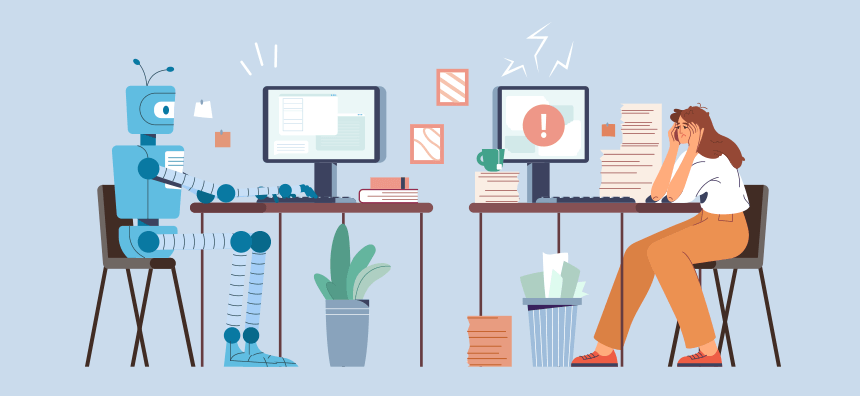
Is AI going to replace project managers?
“If a machine can make all the decisions for project managers, is AI going to replace them?” you may ask, and rightfully so.
The shortest answer is – no.
AI can optimize but not create. AI can work with humans but can’t work instead of them. AI can learn from past patterns but is helpless when it comes to novel situations.
No matter how far technology evolves, you can rest assured that complex and creative jobs are safe. Creativity, social skills, and perceptiveness are outside the realm of AI.
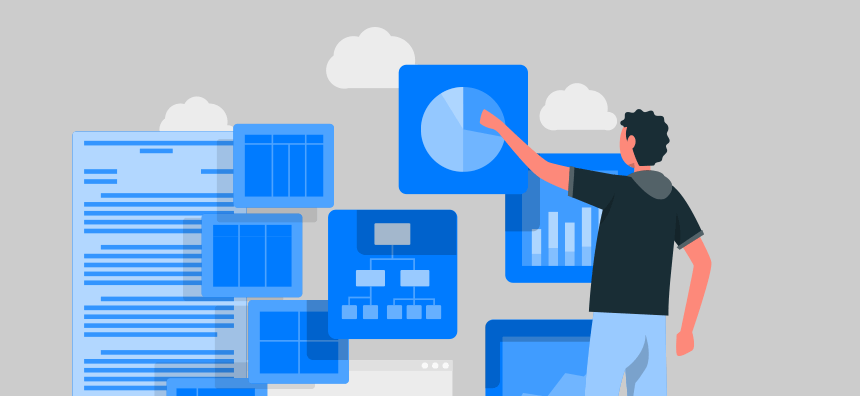
How to become an AI-ready project manager?
No doubt, you’re going to face AI-armed competitors sooner or later. Let’s see how you can get prepared.
Collect enough data.
AI models are hungry for massive amounts of data. The more data you insert, the better it gets. Hence, a lack of data can impact the quality of output and lead to biased predictability.
Start today. Incorporate artificial intelligence into your project management process. If you’ve already done so, start looking into the possibilities of building data stream pipelines that can collect information.
Diversify your data
Merely collecting data is not going to help. You need to feed the AI machines with data of various types, from myriad sources. Limiting AI’s learning to one source or knowledge base isn’t a good idea because it can lead to gaps and jeopardize projects. A wide and diverse set of data is what AI needs to learn and come back with meaningful results.
Avoid overdependence on AI
As AI becomes more sophisticated, companies run the risk of becoming overly dependent on the technology. Overreliance can cause problems both when the algorithm fails and, worse, when no one realizes that it isn’t accurate.
Therefore, even after having automated certain processes, you should train your team to execute processes manually and raise red flags about AI if they’ve spotted something going wrong.
Practice transparency
Customers are becoming more and more conscious about their personal data and privacy. In this regard, transparency is key to maintaining trust with your customers. They should be confident about how their data is collected and used. It’s your duty to help customers understand the reasoning behind AI-driven solutions.
Wrapping it up!
AI is here to prove that being a great project manager is not a gift bestowed on a chosen few. It’s an informed choice to maximize the role of AI in project management.
Yes, artificial intelligence in project management is going to be disruptive. It’s going to force companies to rethink business operations and best practices. AI will be used to automate calls for customer contact centers, improve marketing operation, upgrade existing products with machine learning, offer solutions, and drive innovation. Up to the point when it’ll revolutionize the way projects are managed.

